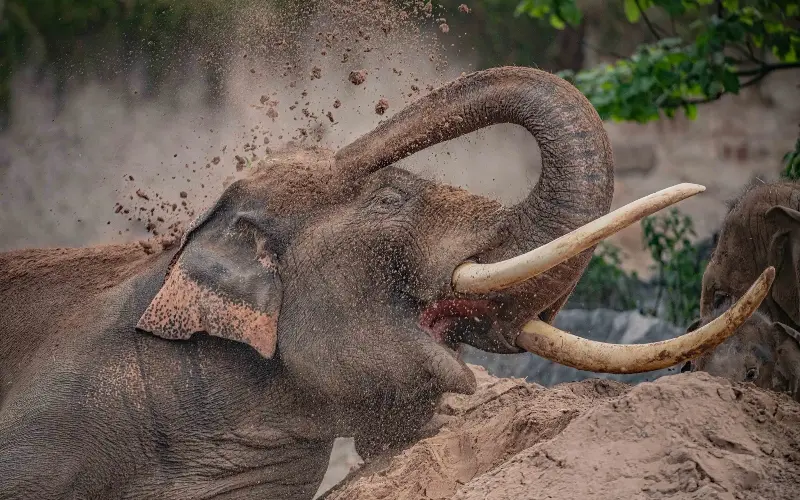
A virus that can kill elephants in just 24 hours finally has a vaccine, thanks to British scientists.
The vaccine targets elephant endotheliotropic herpesvirus (EEHV), one of the most serious threats facing Asian elephants, which are endangered.
EEHV was first recorded in the 1980s, and it killed an elephant at Chester Zoo in 2009. Since then, dozens of animals have died from the virus, which causes uncontrollable bleeding, and has up to an 80 per cent fatality rate once symptoms commence.
Now, scientists at Chester Zoo, the University of Surrey, and the Animal and Plant Health Agency (APHA) have developed a vaccine and shown that it is effective following a six-year trial, meaning it can be rolled out globally.
Dr Katie Edwards, lead conservation scientist at Chester Zoo and co-author of the study, said: “This vaccine has been in development for several years and was first delivered to an elephant here at Chester Zoo in 2021.
“The publication of this research marks a watershed moment because it means we can now say that the vaccine is ready for wider use.
“EEHV has taken the lives of so many elephants, both in human care and in the wild, but this vaccine offers hope. We can’t yet say this will be the end of EEHV deaths, but we have taken a massive step towards that goal.”
Virus present wherever elephants found
There are fewer than 40,000 Asian elephants in the wild. As well as Britain, fatal cases of EEHV have been recorded across India, Nepal, Myanmar and Thailand, with the disease affecting both wild and captive populations.
Nearly all adult elephants carry the virus, which remains dormant but can become infectious.
Javier Lopez, head of veterinary services at Chester Zoo, said: “EEHV is present wherever elephants are found and has been detected in wild populations in at least seven countries. This disease can kill within 24 hours.
“Global records indicate that since the 1980s, there have been an average of three to four EEHV-related deaths per year among elephants in zoos and sanctuaries. It’s the single highest cause of death in young elephants in human care.”
The new vaccine works by stimulating an elephant’s immune system before they are exposed to the virus, priming T-cells, which destroy infected cells and signal the presence of the virus to other parts of the immune system.
It is given by injection, and was found to cause no adverse problems for the elephants. Scientists will also be monitoring the long term impacts when it is rolled out more widely.
Dr Falko Steinbach, professor of veterinary immunology at the University of Surrey and senior author of the study, said: “This is a landmark moment in our work to develop safe and efficacious vaccines.
The team said they were working to clear the legal and logistical hurdles needed to send the vaccine worldwide.
“This is a critical turning point. Until now, EEHV has been a silent killer. With this vaccine, we finally have a weapon to fight back,” added Dr Lopez.
Details of the new vaccine were published in Nature Communications.
